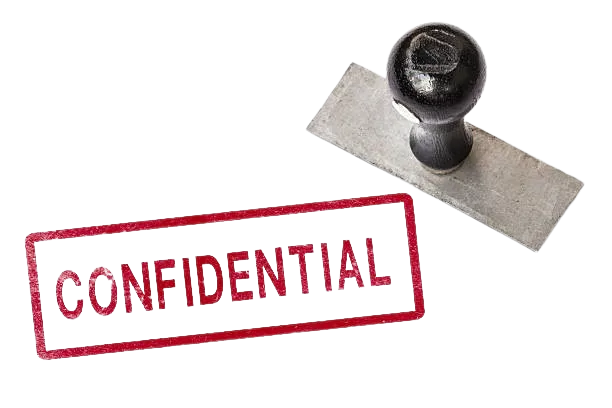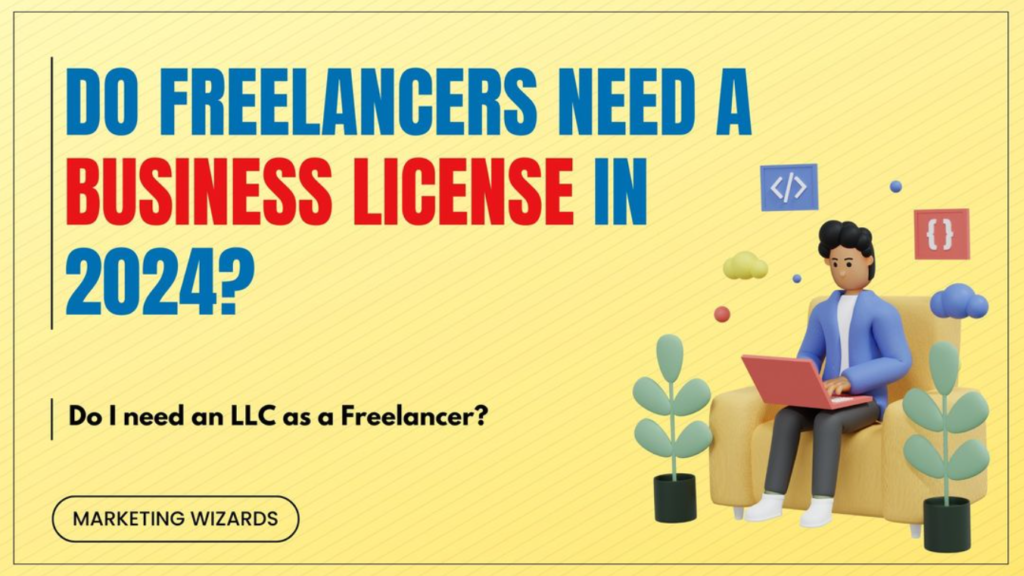Introduction
You’re presumably asking me, hey mate! do I need an LLC as a freelancer? 🤔 Well, as frugality continues to thrive, more individuals are turning to freelancing as a means of earning a living.
However, despite the excitement of starting a freelance career, it’s crucial to understand the legal aspects of being a freelancer. Particularly whether freelancers need a business license. In this comprehensive guide, we will explore the need for a business license for freelancers. Whether freelancers need an LLC, the benefits of obtaining one, and the potential consequences of ignoring legal obligations.
Table of contents
Understanding the Freelancing Landscape
Before delving into the intricacies of business licenses for freelancers, let’s take a moment to understand the freelancing landscape. Freelancing refers to the act of offering services or skills on a project basis, typically without being employed by a single employer long-term.

Still, this type of work allows individuals to be their master, take their systems, and work with nonidentical guests across colorful diligence. Freelance frugality has endured significant excrescency in recent times, with professionals from different grounds embracing this independent work model.
What is a Business License?
In simple terms, a business license is a legal document or certification that authorizes individuals or entities to operate a business. It serves as proof that the business has met specific requirements, such as registration, compliance with local regulations, and payment of necessary fees.

Obtaining a business license offers numerous benefits, including legitimizing your freelance business, ensuring compliance with laws, and enabling access to certain resources and opportunities.
Factors Influencing the Need for a Business License
The requirement for a business license as a freelancer depends on various factors. One crucial factor is the nature of your freelancing work. Certain industries or professions may have specific licensing requirements or regulations, such as healthcare or legal services.
Also, original regulations and ordinances play a significant part. nonidentical nations, countries, and cosmopolises may have their own set of regulations presiding over freelance work. gathering and complying with these regulations is essential to shake implicit penalties or legitimate consequences.
Do You Need an LLC to Freelance?
Numerous freelancers call whether forming a restricted incommodity company( LLC) is necessary for their business. An LLC is a legit reality that separates particular and business arrears, furnishing a certain position of security for its possessors.

While forming an LLC offers advantages such as personal asset protection and potential tax benefits, it may not be a requirement for all freelancers. Operating as a sole proprietorship is also a common choice among freelancers, but it’s crucial to weigh the advantages and disadvantages of each before making a decision.
The Importance of a Freelance License
Apart from a general business license, there is a concept of a freelance license that may be required in some regions or industries. A freelance license demonstrates professionalism, expertise, and adherence to specific standards in your field. It can set you apart from other freelancers and boost your credibility with clients.
Additionally, some clients or projects may specifically require freelancers to hold a freelance license, particularly in highly regulated sectors like finance or healthcare.
Do Freelancers Need a Business License in USA, California, Texas?
In the United States, California, Texas, and other locations, freelancers often do not need to obtain a state-level business license for their freelancing activity. However, there are some serious considerations:
1. Local Requirement
While California does not require a state-level business license for freelancers, some cities or counties within the state may have local legislation requiring a business license. It’s critical to verify with the local government where you live or run your freelance business to see if a local business license is required.
2. Industry-Specific Licenses
Depending on the nature of your freelancing work, you may require industry-specific licenses or permissions. Certain professions or services may have regulatory restrictions; therefore, it’s best to explore any specific licensing duties in your industry.
3. Taxation Considerations
Freelancers in these cities must disclose their earnings and pay taxes. While having a business license is not directly related to tax requirements, complying with state and federal tax rules is critical. Freelancers may need an Employer Identification Number (EIN) for tax purposes.

4. Home Occupation Permit
If you operate your freelance business from your house in California, you may need to obtain a home occupation permit in specific situations. Local zoning restrictions may limit your capacity to conduct business on a residential property.
5. Contract Agreements
While it is not a licensing requirement, it is best to have clear and legally binding contracts in place for freelancing work. Contracts can help protect both you and your clients by defining the terms of the agreement, such as the scope of work, payment conditions, and other critical details.
However, always verify with the relevant local authorities and, if necessary, obtain legal counsel to ensure that any licensing or permit requirements applicable to your specific case are met.
Should I Start an LLC as a Freelancer?
Determining whether to establish an LLC as an independent contractor necessitates a thoughtful examination of several elements. Although an LLC offers safeguards against personal liability and the possibility of tax advantages, it also entails extra administrative tasks and associated costs.
Additionally, it’s imperative to completely estimate your business objects, fiscal status, and comfort position with a threat to arrive at an applicable decision. Consulting with a legal or fiscal expert who has a moxie in freelancing and small business regulations can help you make a well-informed decision that suits your particular situation.
Navigating Local Regulations and Requirements
Freelancers must navigate local laws and regulations to ensure compliance. Researching and understanding the specific requirements for freelancers in your area is essential.

Although, this may involve registering your freelance business with the appropriate local authorities, obtaining permits or licenses specific to your industry, and understanding your tax obligations. Furthermore, some municipalities or regions may also have additional certifications or professional memberships that can enhance your freelance career.
Compliance with Tax Laws
A crucial aspect of freelancing is understanding and complying with tax laws. Freelancers often have different tax obligations compared to traditional employees, including self-employment taxes, estimated tax payments, and deductions. However, keeping accurate records, tracking expenses, and understanding your tax liabilities are essential.
Engaging a tax professional who specializes in working with freelancers can provide valuable insights and help you navigate the complex tax landscape.
Benefits of Legal Compliance as a Freelancer
Ensuring legal compliance as a freelancer brings several significant benefits. Firstly, compliance protects you from potential legal implications, penalties, or fines. It demonstrates professionalism and can enhance your reputation with clients, giving them confidence in your abilities and commitment to your craft.
However, compliance may also open doors to bigger opportunities, as some companies or projects require freelancers to meet specific licensing requirements. Being compliant allows you to take advantage of tax deductions and benefits available to freelancers, potentially reducing overall tax liability.
Conclusion
In conclusion, freelancers need to consider the importance of obtaining a business license to operate legally and avoid potential consequences. Checking freelancing work and specific requirements is essential in determining whether you need a business license or a freelance license.
Apart from that, while starting an LLC can offer certain advantages, it’s crucial to weigh the pros and cons based on your circumstances. Navigating local regulations, being tax-compliant, and maintaining professional standards all contribute to a successful freelance career.
Overall, take the steps to ensure legal compliance, seek professional advice as needed, and enjoy freelancing with peace of mind.
Make Passive Income by Starting TODAY!
Looking to 10x your income? Explore the range of money-making products, I use…. and trust! that are designed to elevate your financial success.
Suggested Article
Boost Your Marketing Career with, An All-in-One Free Marketing Platform!
A step-by-step guide on, How to Work Legally as a Freelancer in the USA
- Get Access to 25+ Free SEO Toolbox Pro by Marketing Wizards
If you have any questions about the need for a business license, we would love to hear from you. Share your experiences or seek advice in the comments section below!
Stay tuned, and good luck!





